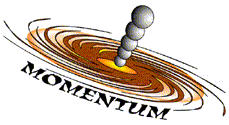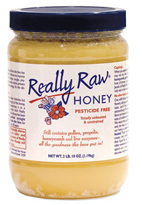Bee pollen has been used as a nutritional food source long before the invention of paper. Praise of the bee and its life giving products can be found in nearly every religious and historical record composed, including the Mayan and Egyptian hieroglyphs and the Sanskrit texts.
So, what's the buzz all about? Well, it has been well documented that adding bee pollen to your diet supports virtually every body system, with emphasis on the reproductive, immune and nervous systems. In fact, scientific studies have demonstrated that bee pollen is a complete food.
Who can benefit from eating bee pollen? Everyone can - young and old alike. Whether it is to treat specific health issues or just for overall health. Bee pollen helps to correct imbalances in the body's chemistry and satisfy nutritional needs. The nutrients in bee pollen are very concentrated; hence even small amounts provide low volume, high-density nutrition.
Weight Management
Bee Pollen satisfies the body's nutritional needs and is an excellent snack food in between meals. It is particularly beneficial to consume a tsp. or so 1/2 hour prior to meals, as it is most readily absorbed on an empty stomach, while quenching pre-meal hunger at the same time.The enzyme content in a teaspoon of pollen also digests your food better allowing a fuller assimilation of nutrients and minerals.
Pollen balances your weight because of its human growth hormone content. Eating 2 to 4 teaspoons a day, before meals, is a recommended amount for weight management.
Antioxidant
Bee Pollen is an excellent antioxidant, proven in clinical tests to effectively reduce the threat of free radicals resulting from everyday dietary toxins. It has also received acclaim as an anti-aging tonic for its immune strengthening and weight balancing effects.
Bee Pollen Contains These Nutritional Components
Rich in B vitamins ~ B1m, B2, B3, B5, B6 and B12
Vitamin C, A, E, Carotenoids and Folic Acid
Rutin helps to support cardiovascular health by strengthening blood cell walls, capillaries and the heart itself. As little as one teaspoon of pollen per day provides enough rutin to benefit your whole cardiovascular system.
Minerals including magnesium, calcium, copper, iron, silica, phosphorus, sulfur, chlorine and manganese.
More protein and free amino acid content, by volume, than any other food source on the planet.
Rich in enzymes and co-enzymes that are necessary for good digestion, plus polyphenols, beneficial fatty acids, related minerals, as well as a large array of phyto nutrients, along with estrogenic and Human Growth Hormone factors.
Bee Pollen includes antioxidants which reduce the threat of free radicals resulting from everyday dietary toxins.
Pollen is also acclaimed for boosting the immune system and also acts as an anti-ageing agent
The Health Benefits of Honey
The health benefits of honey truly are astounding. Not only is honey a highly nutritious food, loaded with minerals, enzymes, and antioxidants, but it is also useful in many ways which do not involve consuming it.
In fact, some of the health benefits of honey are being ‘rediscovered' by modern medical science. Controlled studies are confirming that many of the medicinal ways in which honey has been used for thousands of years are not only effective, but in some cases challenge the efficiency and effectiveness of modern drugs and techniques.
No, honey isn't the ‘miracle substance' that some would have you believe it to be. But the many ways in which honey can truly be healing or helpful to the human body really are quite amazing. And good to know about!
Honey is an Antioxidant rich food. You've surely heard of antioxidants. It's become widely known in recent years how important they are to our health. And honey is loaded with them. It's one of the nutritional health benefits of honey.
Honey is one of our natural antibiotics. This may soon be considered to be one of the most important health benefits of honey. That honey is a wonderful natural antibiotic has been known for millennia, but mostly ignored in recent decades by mainstream medicine. That's beginning to change and for a good reason.
According to pharmacopoeia, honey is a mixture of various alcohols, ethereal oils, formic, lactic, and vegetable acids and very likely of hormones furnished by the bee themselves. It has been reported that honey, even in a weak solution, destroys a large number of bacilli. This healing substance has been successfully isolated and will doubtless prove a valuable ally to mankind in the battle for good health. Honey contains a germ-killing substance called inhibine, which helps prevent infections.
REALLY RAW HONEY
Really Raw Honey is a totally unprocessed whole food, that is never heated or strained, and contains all the pollen, propolis, vitamins, enzymes and trace minerals the bee's put into it. Creamy, smooth and spreadable, Really Raw Honey is more solid than liquid and each jar is capped with crunchy bits of honeycomb, pollen and propolis.


